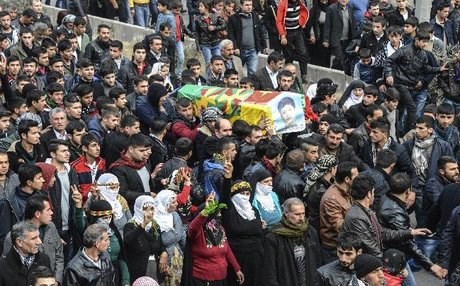Recent years have seen an explosion of protest movements around the world,
and academic theories are racing to catch up with them. This series aims to
further our understanding of the origins, dealings, decisions, and outcomes
of social movements by fostering dialogue among many traditions of thought,
across European nations and across continents. All theoretical perspectives are
welcome. Books in the series typically combine theory with empirical research,
dealing with various types of mobilization, from neighborhood groups to
revolutions. We especially welcome work that synthesizes or compares different
approaches to social movements, such as cultural and structural traditions,
micro- and macro-social, economic and ideal, or qualitative and quantitative.
Books in the series will be published in English. One goal is to encourage nonnative speakers to introduce their work to Anglophone audiences. Another is to
maximize accessibility: all books will be available in open access within a year
after printed publication.
Human Rights Watch conducts regular, systematic investigations of human rights abuses in some seventy countries around the world. It addresses the human rights practices of governments of all political stripes, of all geopolitical alignments, and of all ethnic and religious persuasions. In internal wars it documents violations by both governments and rebel groups. Human Rights Watch defends freedom of thought and expression, due process and equal protection of the law; it documents and denounces murders, disappearances, torture, arbitrary imprisonment, exile, censorship and other abuses of internationally recognized human rights.
Human Rights Watch began in 1978 with the founding of its Helsinki division. Today, it includes five divisions covering Africa, the Americas, Asia, the Middle East, as well as the signatories of the Helsinki accords. It also includes five collaborative projects on arms transfers, children’s rights, free expression, prison conditions, and women’s rights. It maintains offices in New York, Washington, Los Angeles, London, Brussels, Moscow, Dushanbe, Rio de Janeiro, and Hong Kong. Human Rights Watch is an independent, nongovernmental organization, supported by contributions from private individuals and foundations worldwide. It accepts no government funds, directly or indirectly.
The staff includes Kenneth Roth, executive director; Cynthia Brown, program director; Holly J. Burkhalter, advocacy director; Robert Kimzey, publications director; Jeri Laber, special advisor; Gara LaMarche, associate director; Lotte Leicht, Brussels office director; Juan Méndez, general counsel; Susan Osnos, communications director; Jemera Rone, counsel; Joanna Weschler, United Nations representative; and Derrick Wong, finance and administration director.
The regional directors of Human Rights Watch are Peter Takirambudde, Africa; José Miguel Vivanco, Americas; Sidney Jones, Asia; Holly Cartner, Helsinki; and Christopher E. George, Middle East. The project directors are Joost R. Hiltermann, Arms Project; Lois Whitman, Children’s Rights Project; Gara LaMarche, Free Expression Project; and Dorothy Q. Thomas, Women’s Rights Project.
The members of the board of directors are Robert L. Bernstein, chair; Adrian W. DeWind, vice chair; Roland Algrant, Lisa Anderson, Peter D. Bell, Alice L. Brown, William Carmichael, Dorothy Cullman, Irene Diamond, Edith Everett, Jonathan Fanton, Jack Greenberg, Alice H. Henkin, Harold Hongju Koh, Jeh Johnson, Stephen L. Kass, Marina Pinto Kaufman, Alexander MacGregor, Josh Mailman, Andrew Nathan, Jane Olson, Peter Osnos, Kathleen Peratis, Bruce Rabb, Orville Schell, Sid Sheinberg, Gary G. Sick, Malcolm Smith, Nahid Toubia, Maureen White, and Rosalind C. Whitehead.
A Turkish special forces officer has been arrested for the January 15 death of a 12-year-old Kurdish boy during demonstrations in the town of Cizre in southeastern Turkey, the Dogan News Agency (DHA) reported.
It said the police officer, identified only by the initials M.N.G., was arrested in Ankara for the shooting death of Nihat Kazanhan, who local witnesses have said was killed as police teams were traveling through predominantly-Kurdish Cizre during unrest in the town.
The suspect was arrested after another police officer, who had been detained for the shooting, confessed that his colleague M.N.G. had done the shooting and testified to a cover-up.


